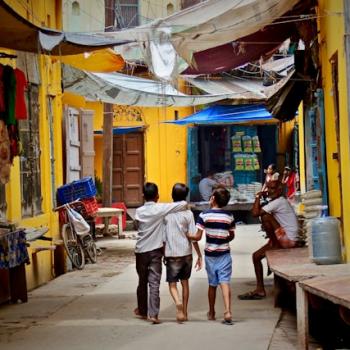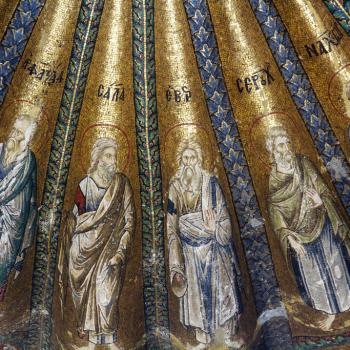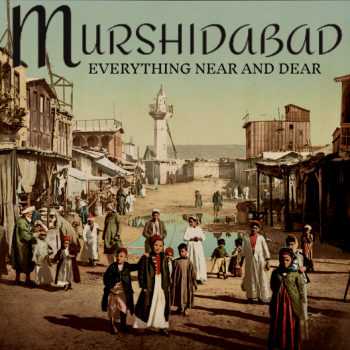My first child was conceived out of wedlock. I was, at the time, not only unmarried but also a crystal meth addict. I was not Catholic but some strange combination of agnostic/lapsed Protestant; my boyfriend and the father of my child was a Catholic. Obviously neither he nor I were living virtuous lives at the time, but the reality of a child on the way forced us to try and straighten ourselves out.
We began seeing a wonderful Cistercian priest who helped us work through that difficult time. One of the biggest issues facing us was the question of what to do when the baby was born. Our diocese at the time did not allow couples who conceive a child out of wedlock to marry in the Church until the child in question is a year old. It's a wonderful rule, I think, one that not only discourages shotgun weddings but also encourages the couple in question to spend that year discerning whether or not it is God's will that they should marry each other or marry at all. It shows the Catholic Church's concern that people learn to live an open, fully integrated human life; no covering up the results of sin with quickie nuptials. No, the couple must learn to bear the consequences of their sin (the consequence historically being public shame, not the baby itself) and rectify their lives publicly.
But this left us with a dilemma. If we followed traditional moral advice (which we received unsolicited from several people), we should live apart during that year. Obviously the responsibility for caring for the baby would fall to me, the mother, and the baby would live with me. But this would leave all three of us in dire straits, at best. I was emotionally and mentally unstable at the outset of the pregnancy, issues that only marginally improved during the pregnancy. The Ogre, my then-boyfriend and now-husband, was trying to finish his undergraduate degree while working nearly full time at a steakhouse to support us. He would have had very little time to see me and the baby if we lived somewhere else, and he wouldn't have been able to contribute substantially to her parenting for an entire year. I was in no state to live alone with a baby, but strained relationships with both of our parents left me with no viable alternative. Furthermore, there was no way the Ogre could afford to pay rent or utilities for two separate apartments.
The other option was that we live together but maintain a chaste relationship. "Live together like brother and sister" was the phrase we heard repeated over and over. This is a task that is widely acknowledged to require heroic virtue from even the most virtuous, yet the likelihood that two people who hadn't attempted to live virtuous lives, basically ever, would be able to accomplish it was somehow not of interest to solicitous advice-givers.
It was of interest to our priest, however. He was interested in a great many things everyone else overlooked. He spent hours with the Ogre and me, together and separately, figuring out our strengths, our weaknesses, our fears, our limits, our feelings for each other, and our hopes for the future. I suspect he recognized that we had both lived in a state of chronic, habitual mortal sin for years and quickly decided that a quick "get out of mortal sin fast" card was not what we needed; at least, not then. I believe his ultimate goal for us was not short-term but long-term. He was trying to figure out how to bring both of us into a state of grace, how to help us learn to love God, each other, and our child, and how to begin building a foundation that might one day support a solid family.
If it sounds like a daunting task, it was. For everyone involved. After a few months, he advised us to get civilly married so that we might begin to rectify our lives publicly and legally and to live together as a family after the marriage . . . not as brother and sister. He very gently told us that the great strain it would put on us both at an already intense and tumultuous time would likely be too much for us to bear and that it would be better for us to slowly bring our lives into conformity with Christ. Of course, the Ogre would not be able to receive communion, which was a burden the weight of which I'm only now beginning to realize.
Not everyone agreed with our priest's advice. Few people did, actually. There was talk of "giving scandal" and avoiding our company so as to not participate in our sin. At the time, that criticism hardly even registered with either of us, consumed as we were by the staggering difficulty of what many saw as "baby steps" or "too-weak correctives" in our lives. There were later critics, though, whose disapproval seemed to be channeled into attempts to hurt or punish us for not trying hard enough, for being too weak. The parish we belonged to refused to baptize our daughter, and our Cistercian priest did her baptism himself, at a parish half an hour away, in a private ceremony. After that, when I was finally entering the Church, the marriage preparation couple at the diocese officially recommended that I not be received into the Church, as they did not find evidence of "sincerity" in me during the three-hour class they taught to twenty couples. They also recommended that the Ogre and I not be allowed to marry in the Catholic Church, again citing my apparent lack of sincerity. Once again, our priest stepped up to the bat, writing a vehement letter to the bishop detailing his careful guidance of us both and the long, arduous path we had taken to rectify our lives.




